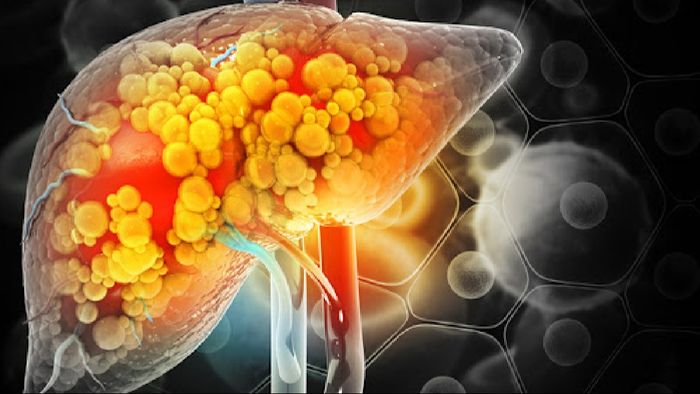Treat fatty liver through home remedies
Fatty liver disease, also known as hepatic steatosis, is a condition characterized by the accumulation of excess fat in the liver cells. It is a common liver complaint, particularly prevalent in Western countries, affecting about one in every ten individuals.

- Feb 15, 2024,
- Updated Feb 15, 2024, 10:44 PM IST
Fatty liver disease, also known as hepatic steatosis, is a condition characterized by the accumulation of excess fat in the liver cells. It is a common liver complaint, particularly prevalent in Western countries, affecting about one in every ten individuals. The liver normally contains some fat, but when more than 10% of its weight is fat, it is considered fatty liver.
There are two main types of fatty liver disease: Nonalcoholic Fatty Liver Disease (NAFLD) and Alcoholic Fatty Liver Disease, also called alcoholic steatohepatitis. NAFLD occurs in people who consume little to no alcohol and is often associated with obesity, insulin resistance, type 2 diabetes, high levels of fats in the blood, especially triglycerides, and other metabolic conditions. Alcoholic fatty liver disease is due to excessive alcohol consumption.
To treat fatty liver through home remedies, one must adopt a holistic approach that includes dietary changes, physical activity, and the use of certain herbal supplements. Here are some key strategies:
Weight Loss
Gradual weight loss is crucial for managing fatty liver disease, particularly non-alcoholic fatty liver disease (NAFLD) and non-alcoholic steatohepatitis (NASH). Aim to lose no more than half to one kilogram (one to two pounds) per week through a combination of diet and exercise.
Healthy Diet
Embrace a nutrient-dense diet that is low in saturated and trans fats. Incorporate unsaturated fats like omega-3 fatty acids found in fish such as salmon, herring, and mackerel, as well as in flaxseeds and chia seeds. Increase your intake of fruits, vegetables, whole grains, nuts, seeds, oats, barley, lentils, peas, and soy to boost dietary fiber.
Exercise Regularly
Engage in regular physical activity to help reduce liver fat.
Limit Sugar Intake
Avoid foods with high glycemic index and reduce consumption of sugar, especially fructose, which is commonly found in sweetened beverages and snacks.
Herbal Supplements
Some herbs like milk thistle may help reduce fat buildup in the liver, especially for those who consume alcohol. Aloe vera gel can also promote liver function and purify the blood. However, it's important to consult with a healthcare provider before starting any herbal remedy, as some can cause liver damage.
Coffee Consumption
If you tolerate coffee well, drinking it may be beneficial as it has been associated with improved liver health.
Avoid Alcohol
For those with alcoholic fatty liver disease, reducing or eliminating alcohol intake is essential.
Antioxidant-rich Beverages
Drinks like green tea, turmeric tea, and beetroot juice, which are rich in antioxidants, may support liver health.
Apple Cider Vinegar
Some suggest that apple cider vinegar can help decrease fat accumulation in the liver and promote weight loss, but this should be taken with caution and ideally under medical supervision.
Mediterranean Diet
Following a Mediterranean diet, which is high in fruits, vegetables, whole grains, and healthy fats, can be beneficial for liver health.
The main cause of fatty liver includes an inability of the liver to process and break down fats efficiently, leading to their accumulation. Factors such as obesity, diabetes, high triglycerides, rapid weight loss, malnutrition, and alcohol abuse can contribute to the development of this condition.
While early-stage NAFLD typically does not cause harm, it can progress to more serious liver damage, including cirrhosis and liver cancer, if it worsens. This progression is also associated with an increased risk of other health problems like diabetes, high blood pressure, and kidney disease. In some cases, NAFLD may reduce life expectancy by approximately 4.2 years for women and 4.4 years for men.
Treatment for fatty liver disease involves lifestyle changes and may include losing weight, using medication to manage cholesterol, triglycerides, blood pressure, and diabetes, limiting over-the-counter drugs, avoiding alcohol, and consulting a liver specialist. While there are no specific medicines to treat fatty liver disease, these management strategies can improve and potentially reverse the condition.